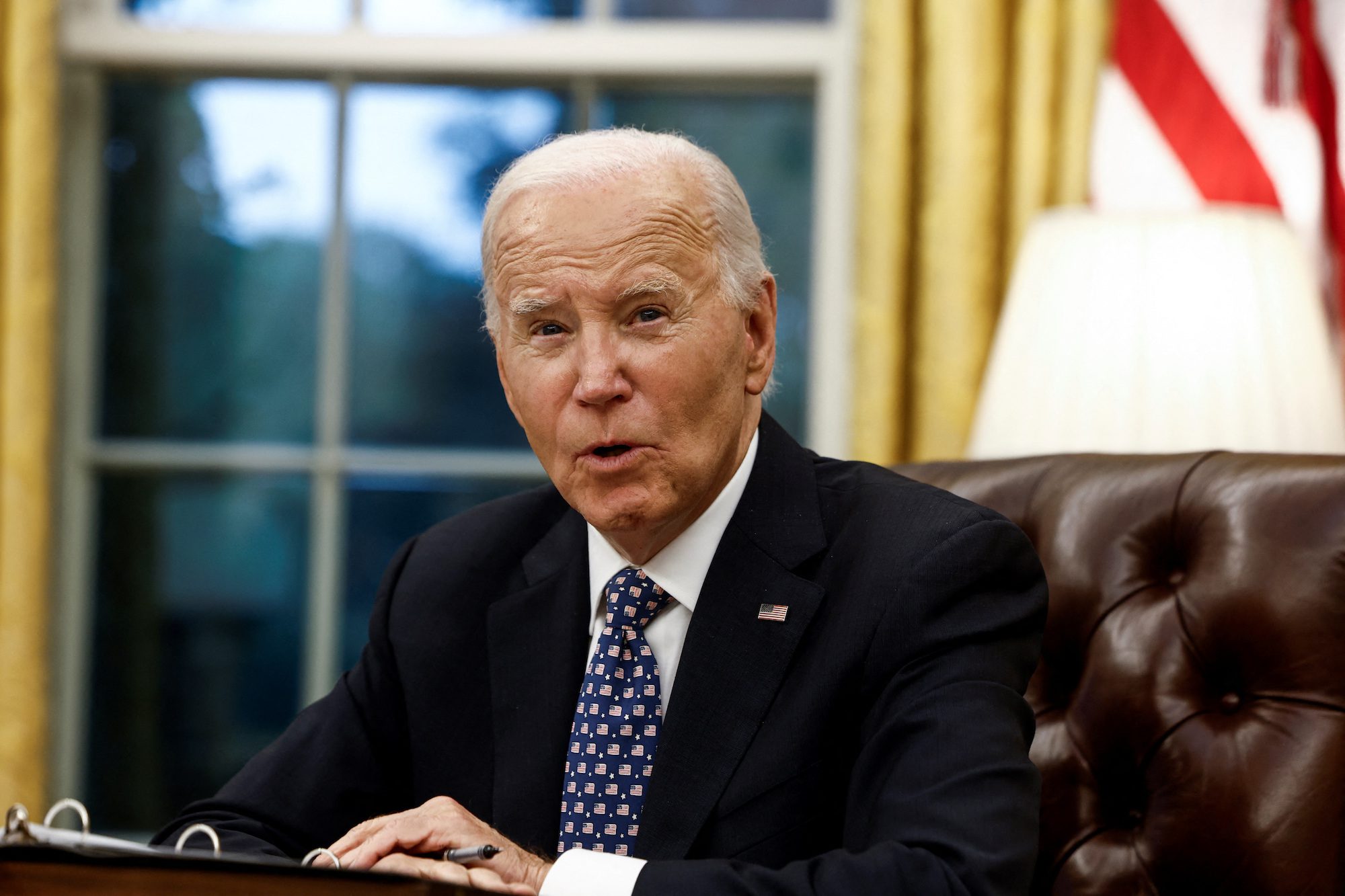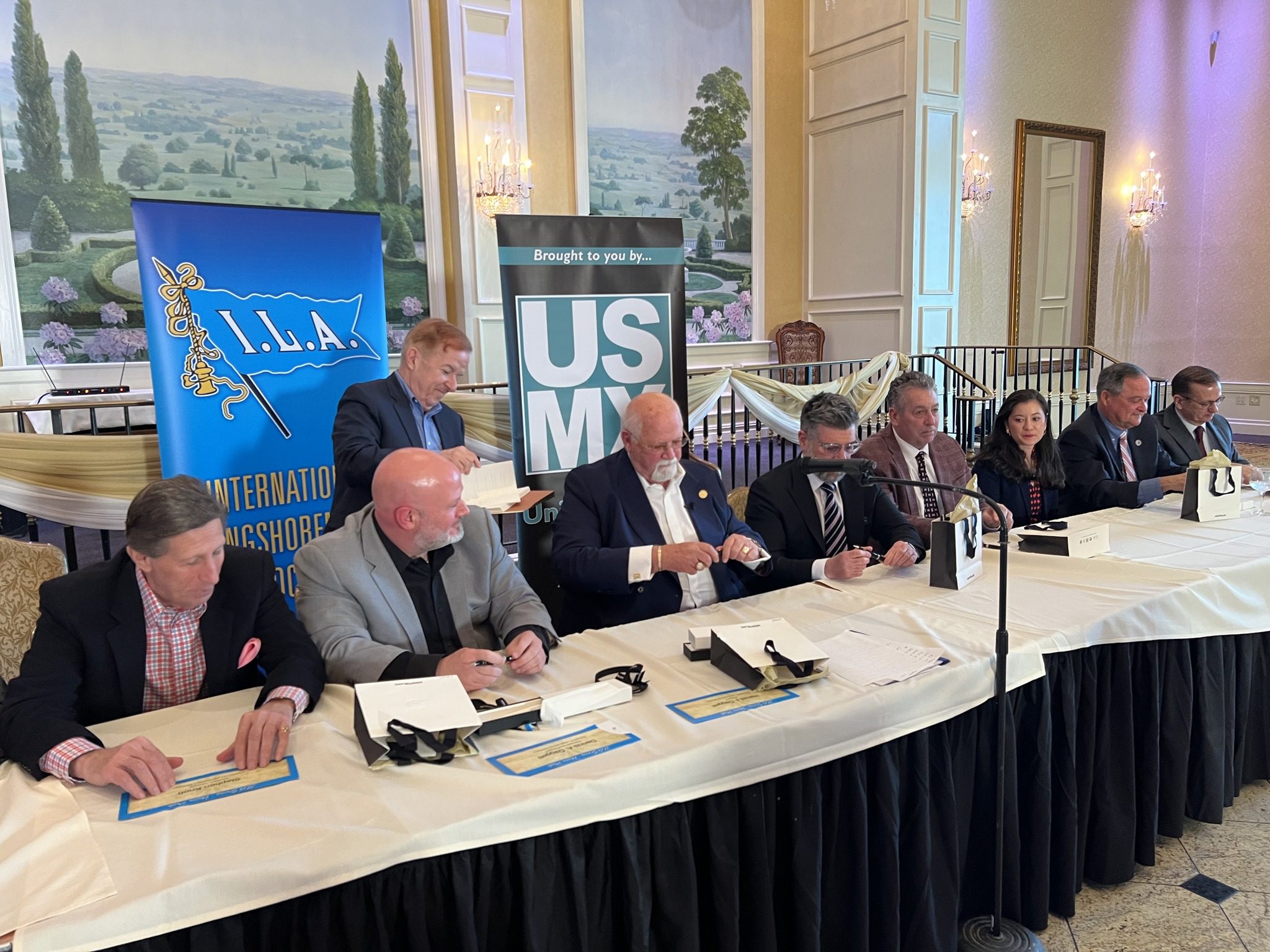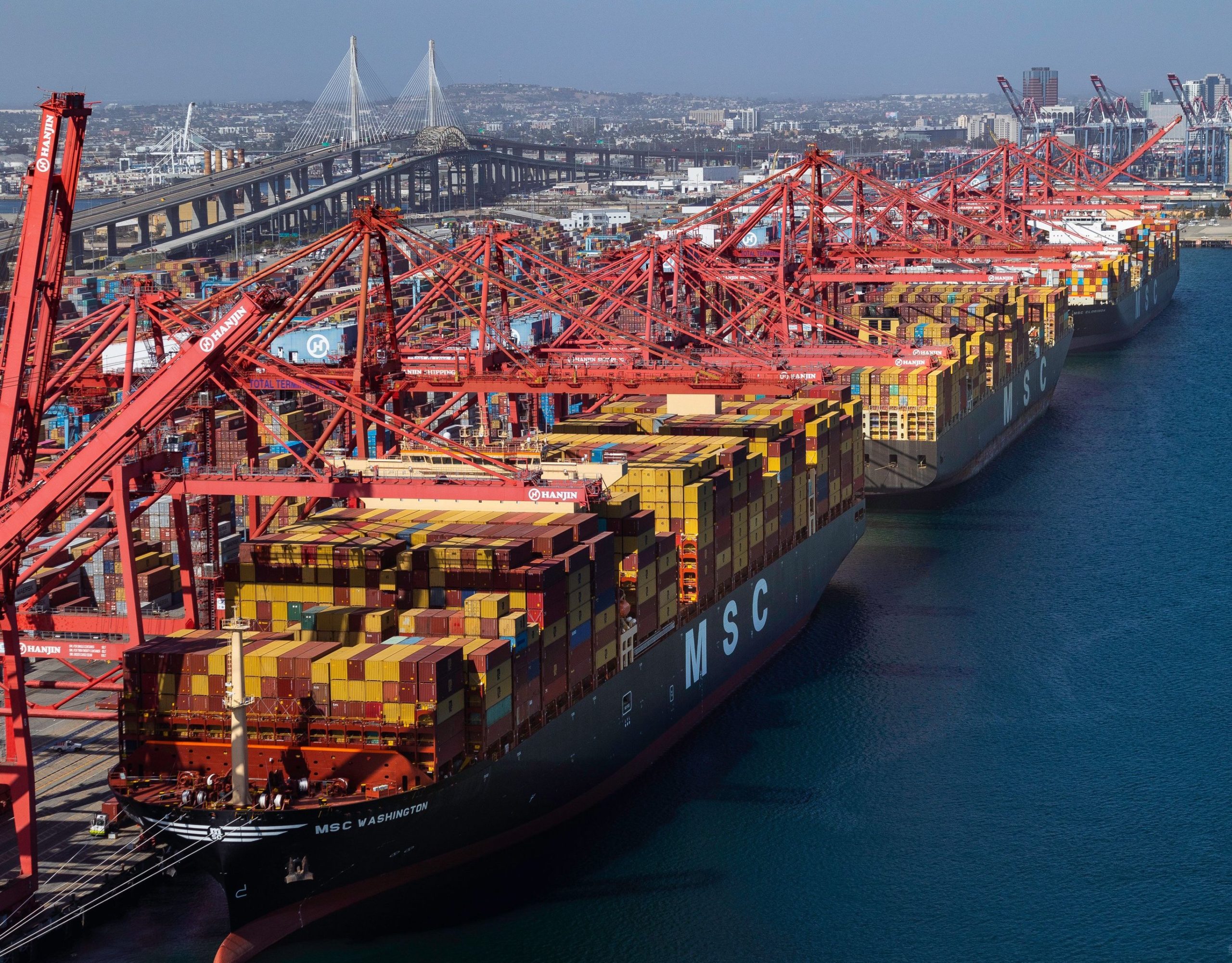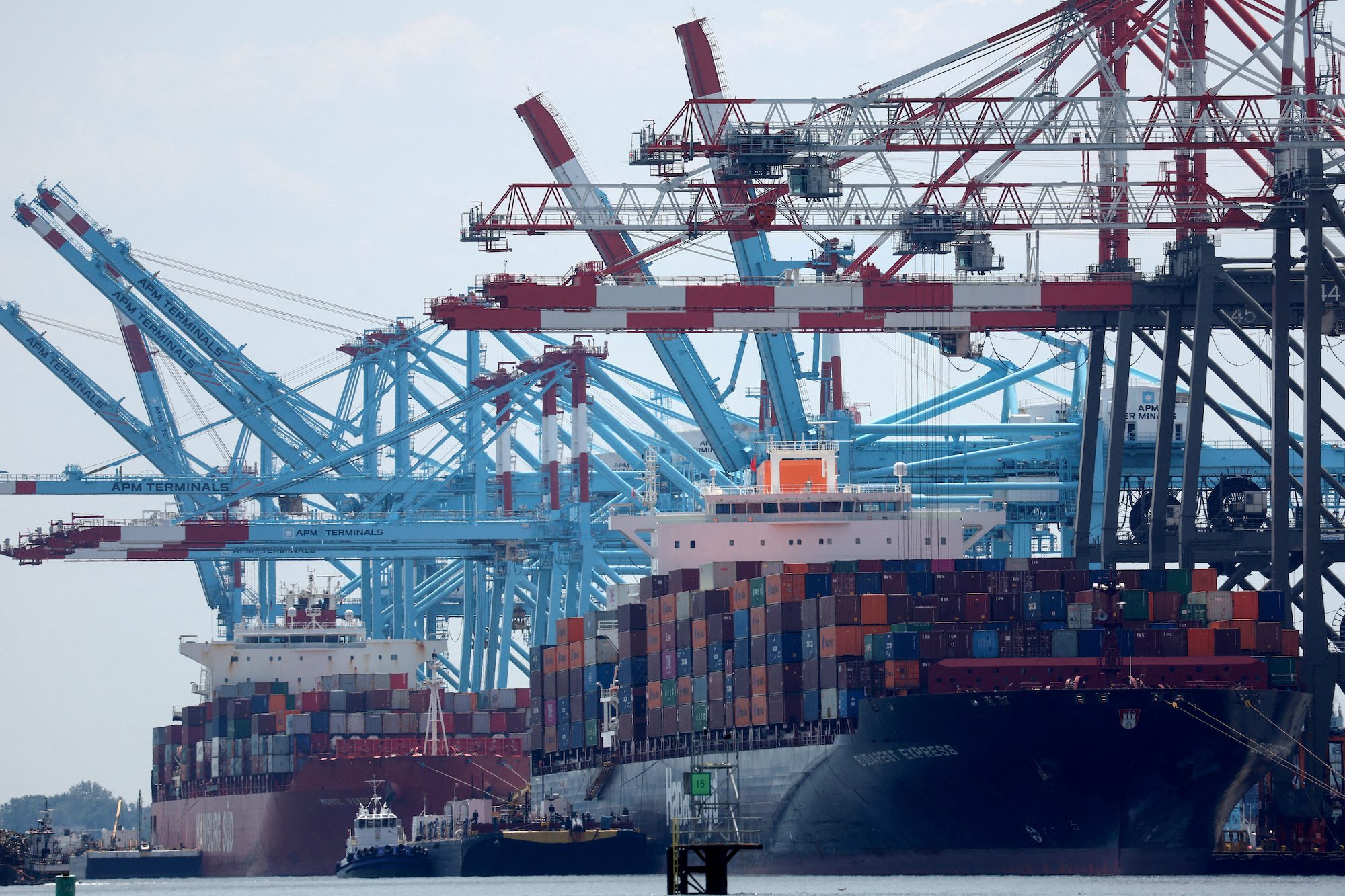As the International Longshoremen’s Association (ILA) launched a widespread strike affecting 36 U.S. Atlantic and Gulf coast ports from Maine to Texas, President Joe Biden has called for fair wage negotiations between the United States Maritime Alliance (USMX) and port workers.
The strike, which began at 12:01 a.m. on Tuesday, marks the first ILA coast-wide strike since 1977, impacting roughly half of all U.S. containerized imports and exports during the ocean peak season. The dispute centers on wage increases and protections against automation.
In a statement on Tuesday, President Biden emphasized the importance of collective bargaining and urged USMX—which represents port employers, including several foreign-owned ocean carriers such as Maersk, MSC, and COSCO—to present a fair offer to the ILA workers.
“It is time for USMX to negotiate a fair contract with the longshoremen that reflects the substantial contribution they’ve been making to our economic comeback,” the statement said.
USMX’s final offer before the deadline included a nearly 50% wage increase, doubled employer contributions to retirement plans, improved healthcare options, and maintained current language on automation. On Tuesday, the ILA union indicated it had lowered its wage increase demand to 61.5%, from its previous request of a 77% pay increase.
“We are now demanding $5 an hour increase in wages for each of the six years of a new ILA-USMX Master Contract,” said ILA President Harold Daggett after joining the picket lines outside the gates of the Maher Terminal in Port Elizabeth, New Jersey. “Plus, we want absolute airtight language that there will be no automation or semi-automation, and we are demanding all Container Royalty monies go to the ILA.”
Daggett was joined in solidarity by Bobby Olvera, Jr., President of the the West Coast’s International Longshore and Warehouse Union (ILWU), who proclaimed the ILWU’s full support for ILA strikers. “The ILWU will stand with your International President…and all of your locals up and down the Eastern Seaboard and the Gulf. The ILWU stands with you Brothers and Sisters,” Olvera said.
Record Profits
President Biden’s statement highlighted the record profits made by ocean carriers since the pandemic, noting that in some cases, profits grew by “over 800%” compared to pre-pandemic levels.
“Executive compensation has grown in line with those profits and profits have been returned to shareholders at record rates,” said Biden. “It’s only fair that workers, who put themselves at risk during the pandemic to keep ports open, see a meaningful increase in their wages as well.”
He also stressed the critical role of dockworkers in the aftermath of Hurricane Helene, stating, “Now is not the time for ocean carriers to refuse to negotiate a fair wage for these essential workers while raking in record profits.”
“Our Administration supports collective bargaining as the best way for workers and employers to come to a fair agreement, and we encourage all parties to come to the bargaining table and negotiate in good faith—fairly and quickly,” the U.S. Department of Transportation added in statement.
USMX Response
In a statement Tuesday afternoon the USMX said it strongly supports collective bargaining and reiterated that its current offer of a nearly 50% wage increase exceeds other recent union settlements and addresses inflation.
“Our industry directly supports hundreds of thousands of jobs in the United States and is a significant economic driver for the U.S. economy and families across the country. USMX is proud of the wages and benefits we offer to our 25,000 ILA employees, and strongly supports a collective bargaining process that allows us to fully bargain wages, benefits, technology, and ensures the safety of our workers, day-in and day-out,” it said.
“We have demonstrated a commitment to doing our part to end the completely avoidable ILA strike,” the statement added.
Acting Labor Secretary ‘Shipping Magnates’
Acting Secretary of Labor Julie Su issued a statement that emphasized the critical role of port workers during the pandemic and in the aftermath of Hurricane Helene, while also highlighting the disparity between the record profits of shipping companies and their reluctance to offer fair compensation to workers.
“As these companies make billions and their CEOs bring in millions of dollars in compensation per year, they have refused to put an offer on the table that reflects workers’ sacrifice and contributions to their employer’s profits,” she said.
“The parties need to get back to the negotiating table, and that must begin with these giant shipping magnates acknowledging that if they can make record profits, their workers should share in that economic success,” her statement added.
Taft-Hartley Act
Despite calls from the Transportation and Infrastructure Committee and the National Retail Federation to invoke the Taft-Hartley Act—which allows presidential intervention in labor disputes that create a national emergency—the Biden administration has indicated that the president does not plan to use this option. This stance is underscored by the President’s statement today, which stresses, “Collective bargaining is the best way for workers to get the pay and benefits they deserve.”
Invoking the Taft-Hartley Act would force dockworkers to return to work for a 90-day “cooling-off period”—a measure the ILA union has dismissed as counterproductive, arguing that its workers would simply slow down port operations instead.
Economic Impacts
The ongoing strike has raised concerns about potential economic impacts. Matthew Shay, President and CEO of the National Retail Federation, warned of “devastating consequences for American workers, their families and local communities,” including inflationary pressures and impacts on the recovery from Hurricane Helene.
Research from Moody’s Ratings indicates that the strike will disrupt supply chains and negatively impact credit for many sectors. East and Gulf Coast ports handled 56% of all U.S. container throughput in 2023, with the port of New York/New Jersey accounting for 28%. Nearly 70% of total containerized U.S. imports by volume came from Asia, with 30%–40% destined for East Coast ports. The affected ports also handle a diverse range of cargo crucial for both importers and exporters, including automobiles, agricultural products, energy resources, and raw materials.
As negotiations continue, President Biden’s statement emphasizes the need for fair compensation and recognition of workers’ contributions, particularly in light of the industry’s recent profitability and the ongoing economic recovery efforts.
Editorial Standards · Corrections · About gCaptain

 Join The Club
Join The Club











